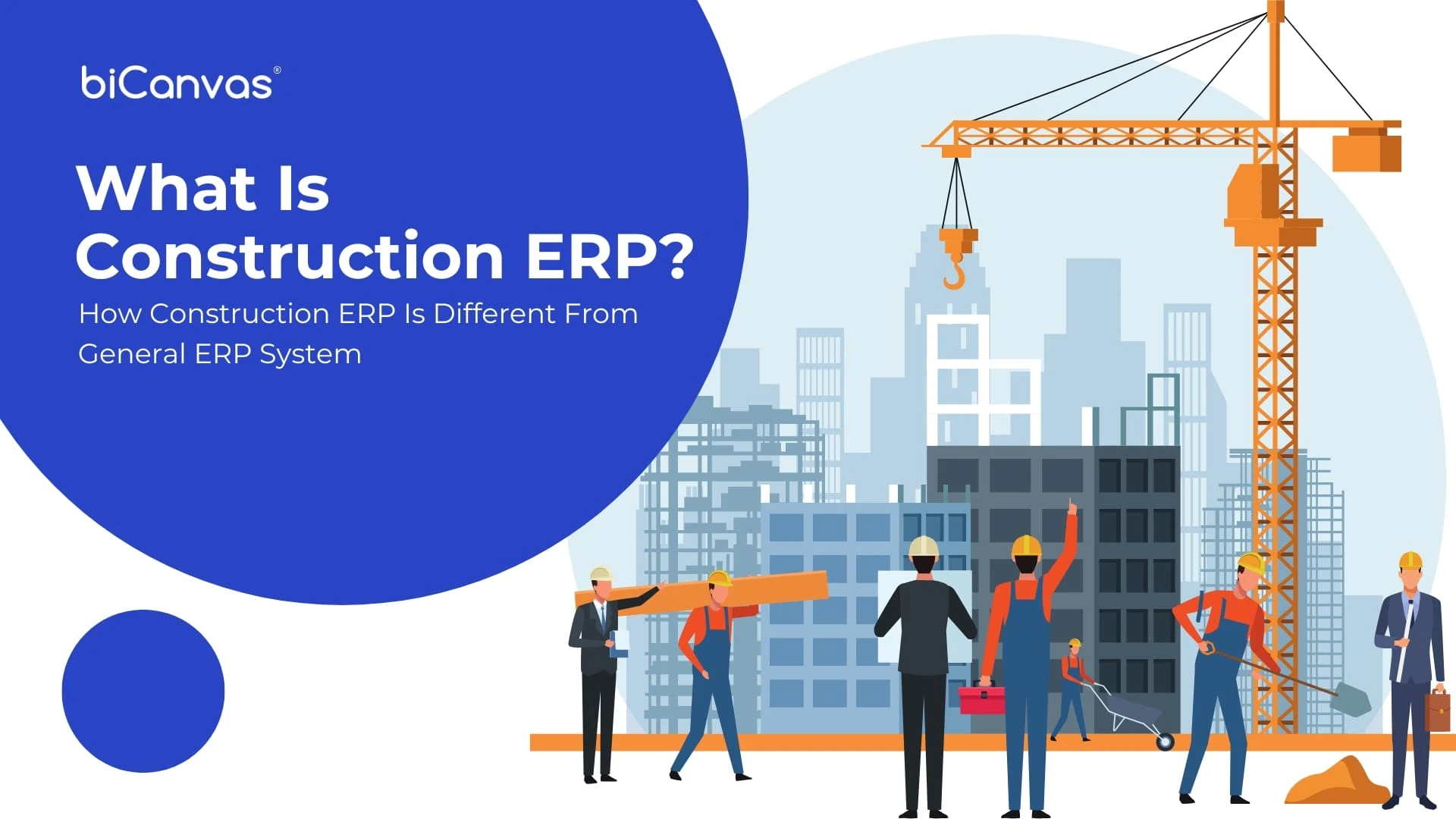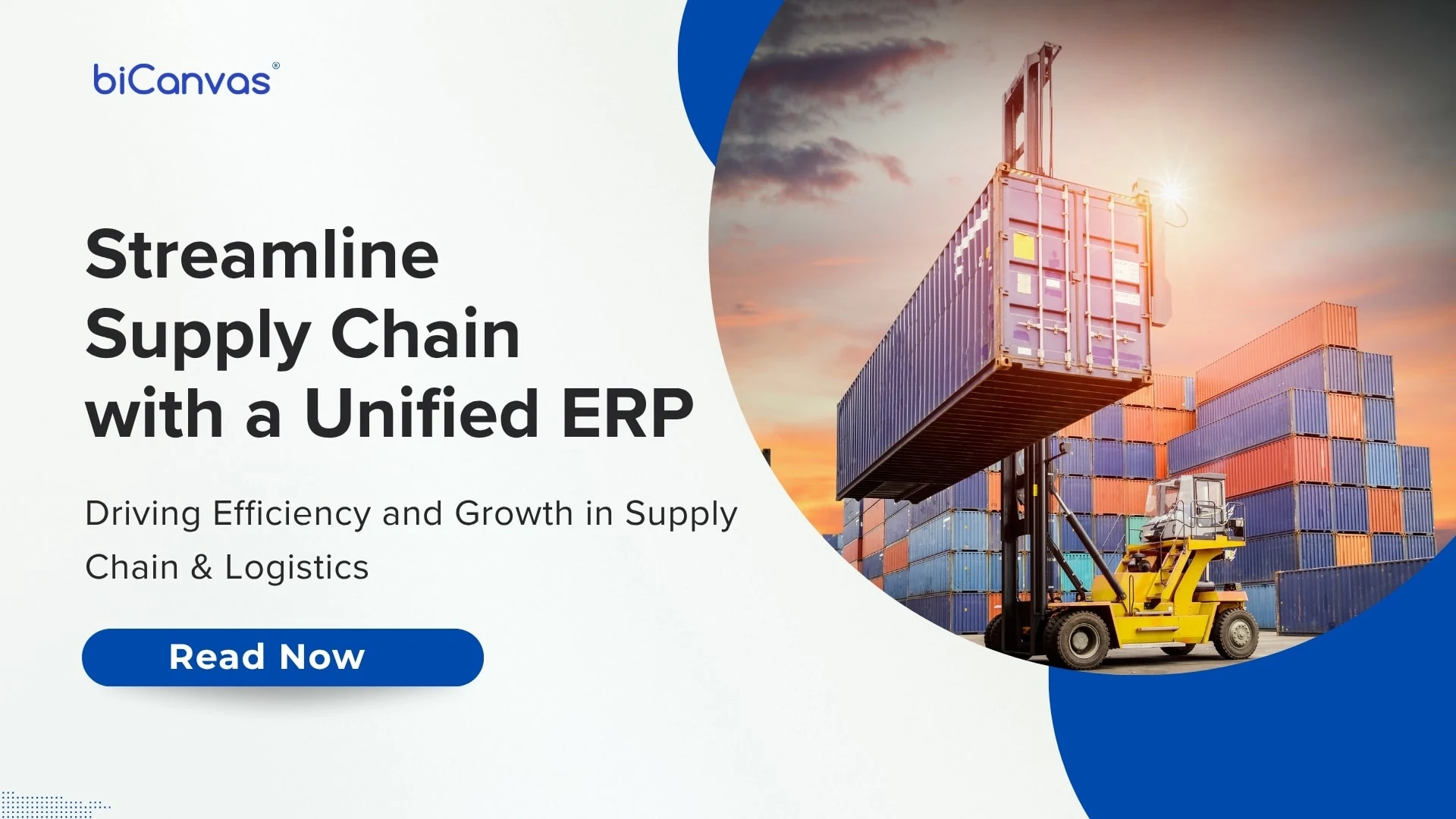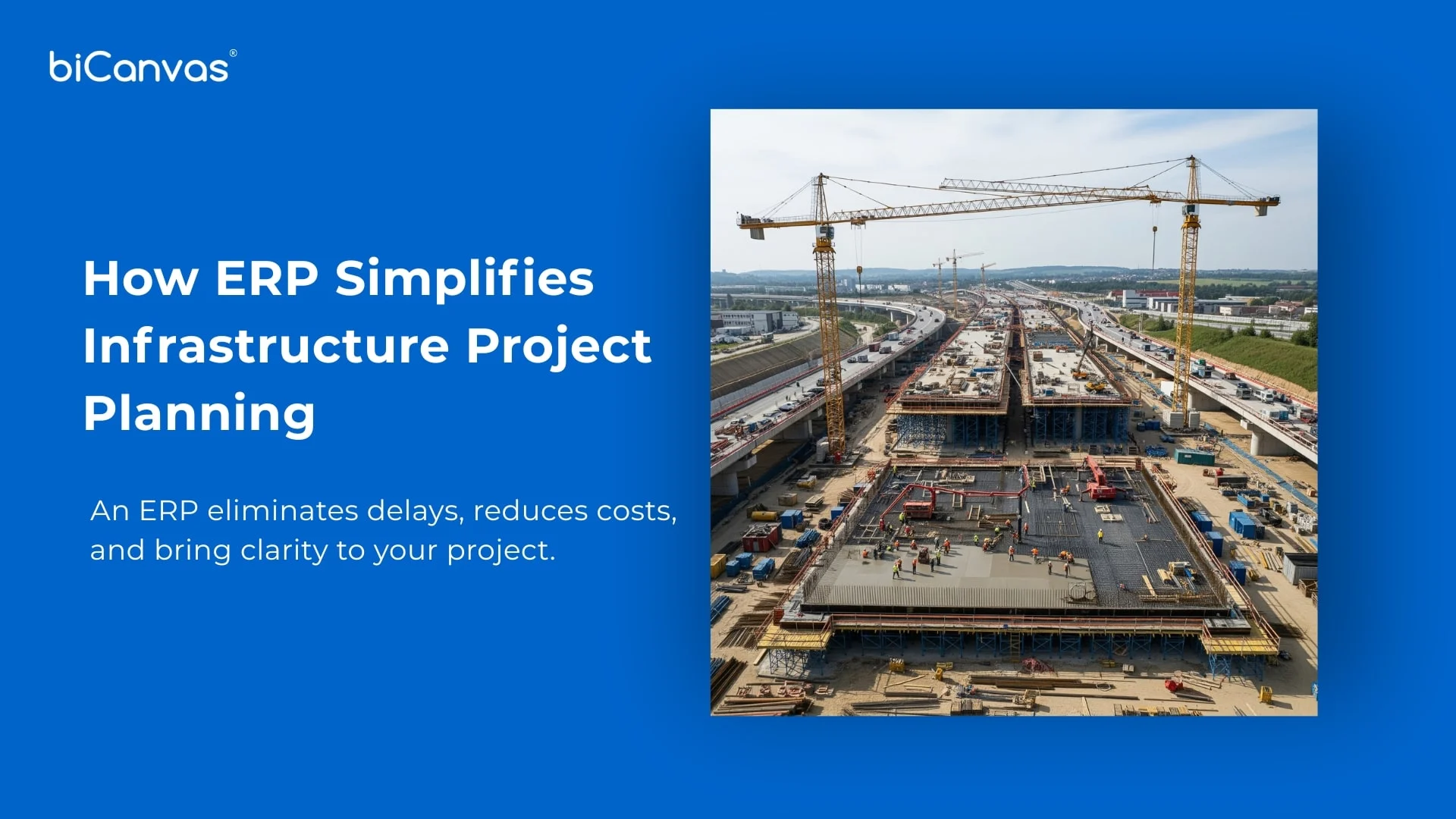What is Construction ERP? A Guide to Enterprise Resource Planning for the Industry
Enterprise Resource Planning (ERP) software integrates different departments, helps keep things organized, and simplifies project management. But does every business use the same ERP software?
Every business has a different work structure, business processes, and compliance. So, to manage your business effectively and drive better output, you need an ERP that is specifically designed for your industry.
What is Construction ERP? And why is it different from generic ERPs?
Construction ERP is software designed especially for construction project management. This software can help you with project planning, material management, financial tracking, project monitoring, and compliance with industry regulations.
Construction ERP is an industry-specific ERP with industry-specific features for project-based accounting, budgeting, scheduling, and industrial IIOT integration for advanced tracking. General ERP requires heavy customization if you want sector-based.
These kinds of ERPs fit better with the industry's needs with necessary features without any clutter in the system, which improves efficiency, reduces errors, and streamlines the operations of your construction projects.

Why Do Construction Companies Need an ERP System?
- Project Monitoring: Track and monitor the project from start to finish for better quality management, completing projects within the deadline and the defined budget.
- Budget Control: Manage expenses, spending, and every project requirement to stay within budget effectively.
- Resource Management: Helps in resource allocation and usage monitoring across all projects to provide better output with minimum resources.
- Real-Time Data: Access project updates anywhere, anytime with high mobility and real-time tracking.
- Automated Reports: Save time and meet compliance deadlines with auto-generated reports.
Key Features of ERP for the Construction Industry
1. Project Planning
The system helps in managing project timelines, budgets, and resource allocation. With project planning, you can schedule tasks, manage dependencies, and distribute workloads efficiently. Real-time updates, automated alerts, and progress reports help improve decisions and execution.
2. Procurement
Manage vendor selection, purchase orders, approvals, and supplier negotiations. Ensure on-time resource availability and avoid project delays due to material shortages. Automating procurement workflows reduces manual errors and keeps the supply chain cost-effective.
3. Finance
Provides project-based accounting and integration with procurement, payroll, and billing. Monitor profit margins, outstanding dues, and expense overruns. ERP ensures financial stability through budget forecasting, compliance tracking, and audit-ready reporting.
4. HR and Payroll
Tracks employee records, contractor management, and site-wise workforce allocation. Supports contract-based labor, daily wage calculation, and compliance with labor laws. Integrates with biometric attendance, GPS tracking, and automated payroll.
5. Equipment Tracking
Track machines and units throughout the project lifecycle. Monitor fuel usage and maintenance schedules. Regular inspection avoids costly repairs and system breakdowns, ensuring steady operations and cost efficiency.
Benefits of ERP in Construction Projects
- Project Planning and Execution: Break large projects into manageable phases, define milestones, and monitor progress effectively.
- Complete Transparency: Track finances, budgets, and project activities in real time to make data-driven decisions.
- Compliance Management: Ensure adherence to tax laws, labor rules, and contract obligations.
- Easy Workforce Management: Streamline payroll, attendance, and subcontractor management for improved productivity.
- Scalability and Business Expansion: With ERP automation and integrations, the system scales with your growing business.
- Reduce Manual Effort: ERP minimizes paperwork and errors with automation, saving time and effort.
Why Choose biCanvas ERP for Construction?
biCanvas construction project management ERP comes with a modular architecture that adapts to your workflow. It includes cloud-based, industry-specific features that help reduce manual work and generate reports automatically?so you can focus on growth.
- All-in-One Solution: Manage Projects, Finances, Resources, and More in One System.
- Adaptable: Customize the ERP based on your exact needs.
- Cloud-Based: Access your data from anywhere, anytime.
- Industry-Specific Tools: Weighbridge and equipment tracking tools to boost productivity.
Conclusion
By centralizing data and improving communication among teams, ERP simplifies construction project management. With biCanvas ERP, construction businesses can manage budgets, resources, and timelines efficiently, resulting in smoother project execution.
Ready to streamline your construction operations and boost project efficiency? Discover how biCanvas ERP can transform your business ? get in touch with us today!













